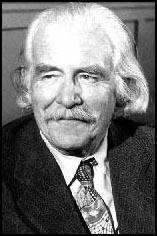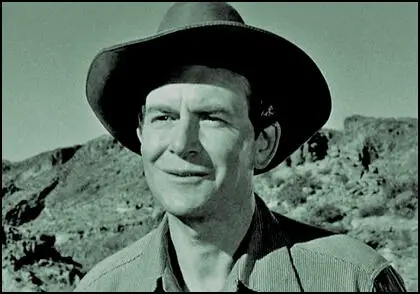Will Greer

William Geer was born in Frankfort, Indiana, on 9th March, 1912. After graduating from Columbia University he joined the Group Theatre. Established in New York by Harold Clurman, Cheryl Crawford and Lee Strasberg in 1931. The Group was a pioneering attempt to create a theatre collective, a company of players trained in a unified style and dedicated to presenting contemporary plays.
Others involved in the group included Elia Kazan, Stella Adler, John Garfield, Luther Adler, Howard Da Silva, Franchot Tone, John Randolph, Joseph Bromberg, Michael Gordon, Clifford Odets and Lee J. Cobb. Members of the group tended to hold left-wing political views and wanted to produce plays that dealt with important social issues.
One of Geer's most important roles was in The Cradle Will Rock, an anti-capitalist musical by Marc Blitzstein. Developed within the Federal Theatre Project, the original production, with Orson Welles, John Houseman and Howard da Silva was banned for political reasons. It eventually was performed at the Mercury Theatre.
In 1934, Will Gere met Herta Ware at a maritime union benefit and the pair were married. Ware also had socialist views and was the granddaughter of Ella Reeve Bloor, who in 1897 she joined with Eugene Debs and Victor Berger to form the Social Democratic Party (SDP). The following year she moved to the more radical Socialist Labor Party that was led by Daniel De Leon.
After appearing in several successful Group Theatre plays, Will Geer moved to Hollywood and appeared in films such as The Mystery of Edwin Drood (1935), The Fight for Life (1940), Deep Waters (1948), Lust for Gold (1949), Convicted (1950) and Broken Arrow (1950).

Will Geer had been active in radical political organizations in the 1930s and 40s. When he refused to testify before the House of Un-American Activities Committee (HUAC) about the political views of other people in the cinema industry, he was blacklisted.
Herta Ware, Will Geer's wife, described the impact of the blacklist on her husband and his friends in her book, Fantastic Journey: My Life with Will Geer (2000): "Many a blacklisted writer has functioned fully with his blacklisted label covered by a pseudonym. Some of the industry's finest lived for years abroad or in the shadows, their economic survival assured. But actors, wholly dependent on their faces, voices and their whole presence, have nowhere to hide. They were cut off in their prime. It is one of many American Tragedies."
Unable to work in Hollywood or in television, Geer returned to the stage. He formed the Theatricum Botanicum, a repertory company in California. As well as producing plays, Geer was involved in organizing discussion groups and folksinging concerts.
After the blacklist was lifted, Greer appeared as Granpa Zeb Walton in the long-running television series, The Waltons (1972-78).
William Geer died in Los Angeles on 22nd April, 1978.
Primary Sources
(1) Herta Ware, Will Geer's wife, described the impact of the blacklist on her husband and his friends in her book, Fantastic Journey: My Life with Will Geer (2000)
Many a blacklisted writer has functioned fully with his blacklisted label covered by a pseudonym. Some of the industry's finest lived for years abroad or in the shadows, their economic survival assured. But actors, wholly dependent on their faces, voices and their whole presence, have nowhere to hide. They were cut off in their prime. It is one of many American Tragedies.

